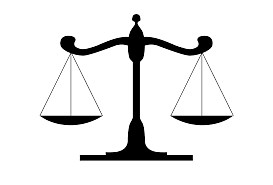
You Can’t Expect Justice From This CLuB
Every part of the Company Law Board reeks of discrimination between the companies and plaintiffs who may have genuine grievances against the big shots of industry
Between the Mongolian Moghuls and justice by sword, Indian royalty and justice by depression, and European colonials and justice by divide and rule, it’s been centuries since we have had any form of decent justice delivery system in what is now called India. If it is any consolation, and if Gangetic as well as non-Gangetic India could be said to have included all territories between Cochin-China (Vietnam) on the one side and the Dwar-e-Mandir/Bab-el-Manded entry to the Red Sea on the other, the Justice Delivery System is probably worse in most other modern countries in this range barring some in the Far Eastern limits of this geographical definition.
What we really have in India now can best be defined as justice by crowd control: The bigger the crowd, the better for everybody except the person seeking justice. Please visit any office of justice delivery in India and follow the money, prior to and from the entry gate onwards, including but not restricted to the parking lot attendant, the fast food and snack seller, the photo-copying and stationary seller and going up to the very doors of their lordships and their officers of the court — the bigger the crowd, the better.
Idea, then, is not to dispense justice, but to increase the crowd, so that the crowd of justice seekers now pays more. More demand for justice, less supply of provisions for justice, higher the cost to the seeker of justice! This part is not codified, but this is what those seeking justice see. What I see is that in the 1970s, the litigants came by cars, and the parking lots of the courts were empty. Now the parking lots are full and there is no space usually for litigants to park-if they have a car left, that is.
Sounds like a code so far?
It is all well said and done to make lofty announcements about how everything is ostensibly codified in the Indian JDS. Which would have been all fine and well said if things were simple and it was possible for the citizens of India to understand what is going on without having to take help from a horde of people to help them transact any process involving interaction with the government or the JDS.
Take the Company Law Board, for example. It’s a judicial or quasi-judicial body with far reaching powers on aspects of company law, which also impact individuals who may have been variously taken for a ride by their employers or by companies they have invested in. Not only do they have a strict dress code for everybody, but they also make it almost impossible for citizens in their individual capacity seeking justice to attend, unless they spend vast amounts of money being “represented”. The CLB should have, long ago, been re-named “club”, with dress code and the rest of it.
Imagine a scenario where somebody trying to get justice under the Company’s Act for pretty much anything — from unpaid dues to refund of fixed deposits to issues pertaining to equity — is pretty much already down and out. First he has to get hold of a proper suit (jacket and trousers will not do, nor will “native clothes”) and string a neck tie on. Next he has to park about 3 km away if he has a car, and then walk in through a strong security check post shared with people headed for offices of paramilitary forces. That is one point at which if things go wrong, the entry will simply not be permitted. I have seen people who have obviously been looted by ‘corporates’ crying at the gate here, unable to go in because the all-important “list” has not reached the correct gate, even though they have a hard copy of the same from the online resources.
After that, when the poor litigant goes to the offices of the Company Law Board, he discovers that the library is reserved only for the regular practitioners. The lounge area is likewise set aside for the representatives of companies and their practitioners. For the citizen litigant or petitioner supplicant, call them what you may, the only place is to stand outside or sit on the filthy stairs, and keep checking if the case number has been called or not. Please take an old newspaper with you to sit on.
This discrimination against the citizen litigant or petitioner supplicant slave is taken further when it is discovered that the photocopier is only for “regular practitioners” and, likewise, the tea and water machine. Meanwhile, the decent toilet is also set aside “not for litigants”. On the other side of the hall, where sit the support staff and administration that provide the nuts and bolts of documents and orders, is a sign saying “entry of authorised personnel only”, which does not include the citizen litigant, petitioner supplicant slave native.
Today, if there is one quasi-judicial authority in India because of which dealing with corporate companies is as good as giving up the ghost of a chance of ever getting justice, it has to be the Company Law Board, which otherwise tries to equate itself with a High Court. The fact that the last Chairman of the Company Law Board, one Vasudevan R, was arrested for blatantly taking bribes, is only symptomatic of all that is wrong with this arm of the justice delivery system.
The CLB must be renamed CLuB — I have said that before, too. Especially since they introduced a Rule 51 banning audio-video recording of proceedings following an RTI application by me. Can’t go against the CLuB, right?